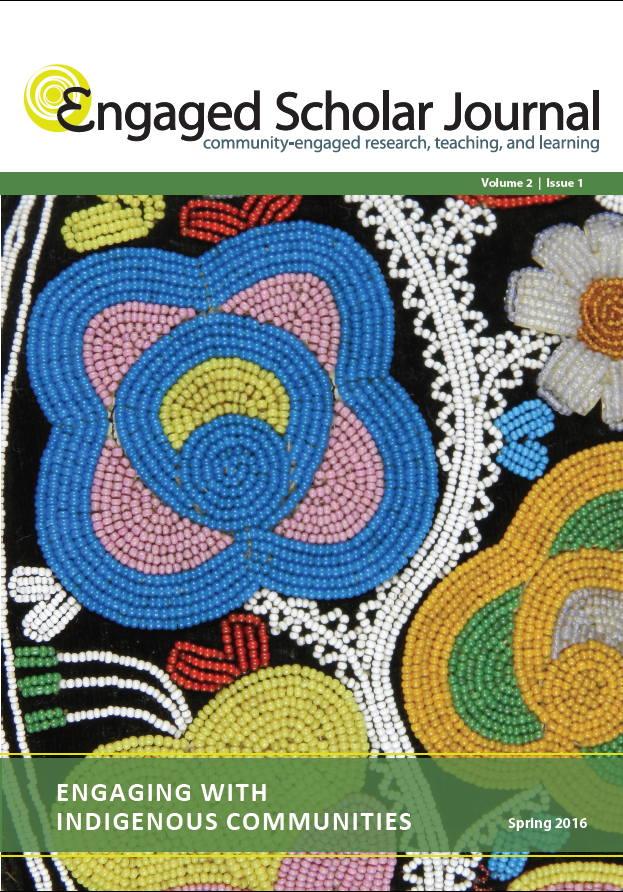Cross-Cultural Digital Storywork: A Framework for Engagement with/in Indigenous Communities
DOI:
https://doi.org/10.15402/esj.v2i1.209Keywords:
Indigenous, Native, documentary filmmaking, story, participatoryAbstract
While Indigenous peoples have long urged attention to Six Rs (respect, relevance, reciprocity, responsibility, relationality, and representation) that are important to community-engaged work, application of these principles has been sporadic within the filmmaking industry. Many Indigenous communities do not have the technical expertise and/or resources needed to support professional quality audiovisual production. As a result, they rely on predominantly White filmmakers from beyond the community. Unfortunately, mainstream filmmaking practices have historically demonstrated a disregard for Indigenous ways of knowing, and a scarcity of meaningful relationships between filmmakers and community members has further contributed to a legacy of insensitive filmmaking within Indigenous contexts. In addition, internet-based distribution of cultural content raises questions about post-production sovereignty. In this project, Tribal College (TC) students and faculty partnered with students and faculty from a Predominantly White Institution (PWI) to develop culturally sustaining and revitalizing documentaries using storywork, digital storytelling, ethnocinema, and community-centered participatory research. Throughout the Digital Histories Project, TC participants gained technical expertise, PWI participants learned about culturally sustaining/revitalizing filmmaking, and faculty leaders identified ways to support use of the Six Rs within social science, history, and teacher education. Results offer methodological and pedagogical insights for scholars, educators, tribal leaders, and filmmakers.
Downloads
Published
Issue
Section
License
Authors who publish with this journal agree to the following terms:
- Authors retain copyright and grant the journal right of first publication with the work simultaneously licensed under a Creative Commons Attribution License CC BY 4.0 that allows others to share the work with an acknowledgement of the work's authorship and initial publication in this journal.
- Authors are able to enter separate, additional contractual agreements for the non-exclusive distribution of the journal's published version of the work (e.g., post it to an institutional repository or publish it in a book), with an acknowledgement of its initial publication in this journal.
- Authors are permitted to post their work online (e.g., in an institutional repository or on their website) after the publication of their work in the Engaged Scholar Journal.
- Please note that while every opportunity will be taken to ensure author participation in the editing process, due to time constraints final copyediting changes may be made before publication to ensure APA adherence throughout all submissions.




